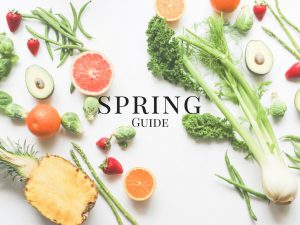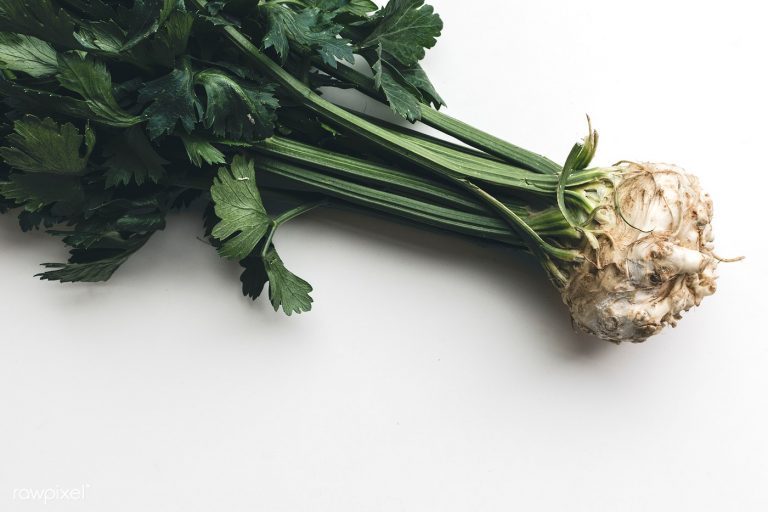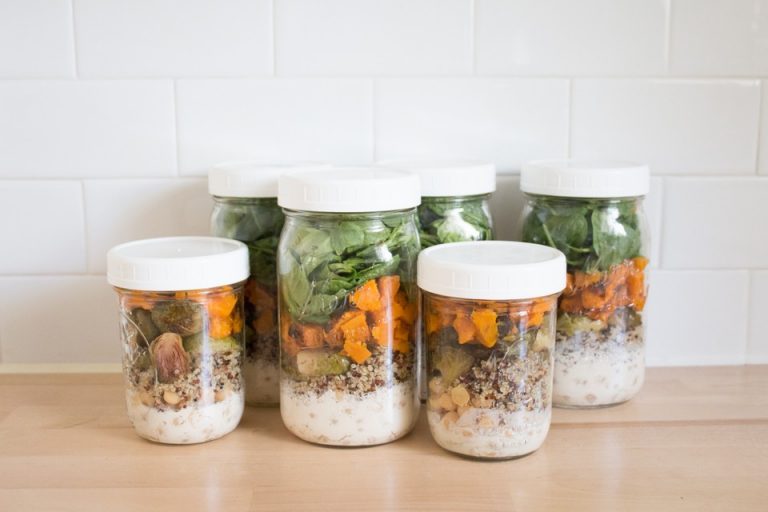Where do you get your calcium from if you don’t consume dairy products? This is a common question I get from people when they hear that we are a dairy-free family. Here you will find a ton of information as to why eliminating dairy products could benefit your health and how to get the calcium from other plant-based sources + my favorite dairy alternative!
A Guide for Plant-based Nutrition: Calcium
We know calcium is needed to build strong bones, but what you don’t probably know is that it also affects muscles, hormones, nerve function, enzymes, blood clotting, and much more. Most all the calcium in our bodies is stored in our bones, while our bones feel rock hard, they are actually living tissue that is constantly creating new bones while the old bone is destroyed.
Our bodies do a good job at regulating the calcium in our blood, but if we aren’t supplying our bodies with enough calcium then our bodies will pull from our calcium reservoir, yes that’s right our bones. So how do we maintain healthy bones?
Is Milk Good For You?
Even though the average milk consumption has dropped 8% in the past ten years, it‘s still almost twice the volume of dairy consumption as most of our neighboring countries.
It has been stated for years that dairy is high in calcium, it is good for bone health, and it has the necessary protein and vitamin D that our body needs.
Let me start by saying this, dairy is not needed to get proper calcium.
What may have been effective, even necessary 100 years ago, does not work now due to changes in our bodies, environment, processing, and pasteurization. What many researchers are saying is that calcium in milk is barely absorbed (especially if pasteurized) and that it can likely deplete the calcium stored in the body.
Research shows that dairy has high amounts of cholesterol and saturated fats, which have been known to increase the risk of stroke and heart attacks.
Dr. T. Colin Campbell, the author of The China Study and professor of nutritional biochemistry at Cornell University, found that the protein that creates cancer is casein. Casein protein makes up about 87 percent of the protein in cow’s milk. According to Dr. Campbell, a diet that contains more than 10% protein, which is about 50 grams if a person consumes an average of 2,000 calories per day, can eventually lead to cancer. In reality, Americans eat way more than that. On average, the American diet contains 17% protein and 12% is usually an animal base.
This book states that when you drink a glass of milk, it actually makes the pH levels in the body acidic, which then triggers a biological correction process to neutralize the pH in the body and bring it back to balance. Since calcium is an excellent neutralizer, the body will pull the very same calcium that the bones need and use it to balance out the acidic effect that the milk and other animal proteins have on the body, possibly leaving you deficient in calcium.
Best Plant Sources for Calcium
If you’re living a dairy-free lifestyle either by choice or by need, know that you don’t have to consume dairy to get the proper calcium your body needs. There are many calcium-rich foods that are both dairy-free and delicious. All of which are alkalizing and low in fat.
Dark Leafy Greens
- collard greens (27% DV per cup cooked),
- spinach (24% DV per cup cooked)
- turnip greens (20% DV per cup cooked)
- mustard greens (17% DV per cup cooked)
- arugula (13% DV per cup)
- seaweeds/kelp (13% DV per cup)
- swiss chard (10% DV per cup cooked)
- kale (9% DV per cup cooked)
- watercress (8% DV per cup)
Fruits & Vegetables
- bok choy (16% DV per cup cooked),
- okra (12%DV per cup cooked),
- broccoli (6% DV per cup cooked)
- figs (6% DV per cup dried)
Nuts & Seeds
- almonds (38% DV per cup)
- brazil nuts (21% DV per cup)
- sunflower seeds (10% DV per cup)
- quinoa (8% DV per cup)
- chia seeds (8% DV per tablespoon)
- tahini/sesame seeds (6% DV per tablespoon)
- flaxseeds (3% DV per tablespoon)
Legumes
- organic tofu (77% DV per cup firm),
- soybean (26% DV per cup)
- white beans (20% DV per cup)
- split peas (11% DV per cup)
How much calcium do I need?
The amount of calcium you need depends on your age and whether you are a man or woman. Typical women need more calcium because of the fluctuation of hormones in the body from menstruation, pregnancy, lactation, and menopause. The average daily recommended amounts are listed below in milligrams (mg).
| Age | Daily Amount |
|---|---|
| Birth to 6 months | 200 mg |
| Infants 7–12 months | 260 mg |
| Children 1–3 years | 700 mg |
| Children 4–8 years | 1,000 mg |
| Children 9–13 years | 1,300 mg |
| Teens 14–18 years | 1,300 mg |
| Adults 19–50 years | 1,000 mg |
| Adult men 51–70 years | 1,000 mg |
| Adult women 51–70 years | 1,200 mg |
| Adults 71 years and older | 1,200 mg |
| Pregnant and breastfeeding teens | 1,300 mg |
| Pregnant and breastfeeding adults | 1,000 mg |
Calcium Supplements
The amount of calcium you need from a supplement depends on how much you’re getting from food. I recommend getting your daily dose of calcium from food first and supplementing only if needed.
If you are unsure whether you need to be taking supplements, I recommend getting tested by a physician or through a testing facility. If you are a vegan, HealthLabs.com came out with a new test that targets all the common vitamin and nutrient deficiencies that you might face if you are a vegan. This will help you get a baseline measurement so that you can know if you need to supplement and if so, how much to take.
Calcium supplements can sometimes cause unpleasant stomach discomforts like gas and constipation. I often recommend to people when starting calcium supplements to start with a small amount and slowly build up.
I like the Garden of Life Plant Calcium, these didn’t upset my stomach and are a great balance of everything you need to properly absorb plant-based calcium.
Since the body has a hard time absorbing a large amount of calcium at once, spreading out the intake of calcium is often recommended, it is best absorbed when taken in amounts of 500 mg or less. Start with 200 mg and slowly add more each week. Always take with food as eating produces stomach acid that helps your body absorb most calcium supplements, getting a healthy amount of vitamin D, vitamin K2, and magnesium with your supplement will help the absorption process. But always talk with your healthcare provider first to understand how you should supplement calcium, if at all.
Calcium Absorption
Just because calcium enters the body, doesn’t mean it’s absorbed properly by the body. The necessity of Vitamin D is yet another reason we often hear, “Got Milk?”.
Vitamin D and Magnesium are both necessary for the body to use calcium and without these, calcium won’t be absorbed correctly. The main reason why many calcium supplements often contain vitamin D is for that reason. If your body cannot absorb the calcium due to a Vitamin D deficiency, you may lose bone, have lower bone density, get cavities, and are more likely to break bones as you age. The best way to fill the body with vitamin D is simple. Get out in the beautiful sunshine!
Dr. Mercola said when ask about calcium supplementing:
“The balance of bone-building nutrients is what truly matters. Too much calcium, or calcium without its other co-nutrients can be hazardous to your health, especially for your heart and arterial health.”
In addition to vitamin D, magnesium is also needed and must be in the proper ratio to absorb calcium correctly. Our modern diets today are often very high in calcium from synthetic sources and very low in magnesium.
Magnesium is used by the body to convert vitamin D into its active form so that it can be used to absorb calcium properly. Vitamin K2 is also important for calcium synthesis. It helps keep calcium in the bones and out of arteries and muscles. Our bodies is one complex machine and understanding how it all works helps us with feeding our body the very best. When it comes to calcium absorption it’s far more effective if you also incorporate vitamin D, magnesium, and vitamin K.
LSN’s Top 10 Dairy-Free Alternatives
The idea of removing all dairy products from your diet may seem a bit challenging. Luckily, more and more people are shifting to a dairy-free diet, inspiring more companies to create dairy-free products. Here are just a few of my favorites!
01. Dairy-Free Milk Alternatives
- Silk Almond Milk
- Good Karma Flax Milk
- So Delicious Coconut Milk
02. Dairy Free Cheeses
- Follow Your Heart Shredded Cheese
- Daiya Sliced Cheddar Cheese
- So Delicious Mozzarella
03. Vegan Butter
- Earth Balance Soy Free Butter
- Earth Balance Coconut Spread
04. Dairy Free Yogurts
- Silk Almond Milk Yogurt
- So Delicious Vanilla Yogurt
- Almond Dream Vanilla Yogurt
05. Dairy Free Ice Cream
- So Delicious Vanilla Ice Cream
- Halo Top Dairy Free
- Almond Dream Vanilla
- My 3 Ingredient Strawberry Banana Vegan Ice Cream
06. Vegan Pizza
- Daiya Veggie Lover’s Pizza
- Amy’s Non-Dairy Cheese Pizza
07. Vegan Cream Cheese
- Vegan Gourmet “Follow Your Heart” Cream Cheese
- Kite Hill Almond Milk Cream Cheese
- Tofutti Cream Cheese
08. Dairy Free Whipped Cream
- So Delicious Coconut Whipped Cream
- Tru Whipp Dairy free Whipped Cream
09. Vegan Mac & Cheese
- Daiya Cheezy Mac
- Annies Vegan Macaroni & Cheese
- Earth Balance Mac & Cheese
10. Dairy Free Chocolate
- Enjoy Life Chocolate Chips
***Although these products are great nothing beats homemade as you will always know where it’s from and what ingredients are used***
Let’s Chat!
I hope this post helps with understanding dairy and how to get calcium from plant sources. Use this as a resource and bookmark for later as I will be adding to it as I learn more. Share & comment below, I’d love to hear what dairy-free products you love and what other topics you would like me to cover. Stay tuned :)
Hugs,

The information in this post is an accumulation of my own research and experience. It is not intended to be a substitute for medical advice, diagnosis, or treatment. Always seek the advice of your physician or a qualified health provider. I hope this post answers some of your questions. If you have any other questions email me at Vanessa@LiveSimplyNatural.com and I’ll answer them to the best of my ability.










2 Comments
Cheese is still my most difficult product to cut out! But I’m happy to say I’ve cut down on it!!
Awesome! Small steps lead to big change <3